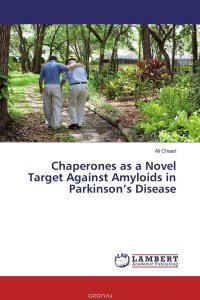Protein misfolding and amyloid formation is an underlying pathological hallmark in a number of prevalent diseases of protein aggregation, including Parkinson’s disease (PD), Alzheimer’s disease and Type 2 diabetes. Most importantly, the severity of these diseases appears to correlate with the degree of the deposition of amyloid aggregates. The misfolding of ?-synuclein, a protein involved in PD, followed by its aggregation has been shown to be highly cytotoxic and to play a key role in the death of neurons. Thus, the modulation of the aggregation process, promoting the proper folding of ?-synuclein, may be considered as an attractive avenue for a therapeutic intervention. Indeed, molecular chaperones have been shown to assist in the maintenance of a functional proteome in vivo and to prevent protein misfolding, aggregation and amyloid formation. Это и многое другое вы найдете в книге Chaperones as a Novel Target Against Amyloids in Parkinson’s Disease
Chaperones as a Novel Target Against Amyloids in Parkinson’s Disease
Подробная информация о книге «Chaperones as a Novel Target Against Amyloids in Parkinson’s Disease ». Сайт не предоставляет возможности читать онлайн или скачать бесплатно книгу «Chaperones as a Novel Target Against Amyloids in Parkinson’s Disease »
